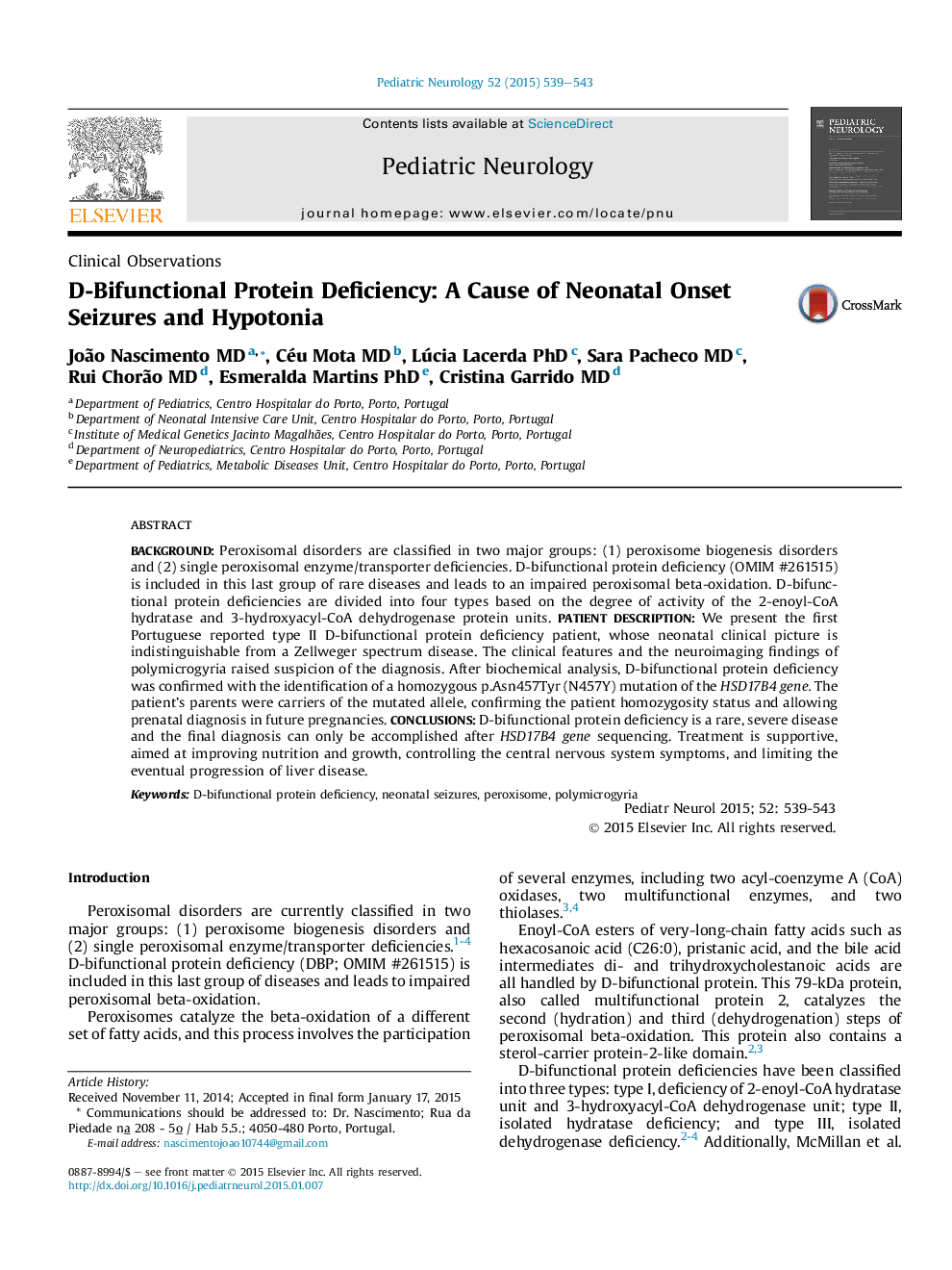| کد مقاله | کد نشریه | سال انتشار | مقاله انگلیسی | نسخه تمام متن |
|---|---|---|---|---|
| 3084544 | 1189772 | 2015 | 5 صفحه PDF | دانلود رایگان |

BackgroundPeroxisomal disorders are classified in two major groups: (1) peroxisome biogenesis disorders and (2) single peroxisomal enzyme/transporter deficiencies. D-bifunctional protein deficiency (OMIM #261515) is included in this last group of rare diseases and leads to an impaired peroxisomal beta-oxidation. D-bifunctional protein deficiencies are divided into four types based on the degree of activity of the 2-enoyl-CoA hydratase and 3-hydroxyacyl-CoA dehydrogenase protein units.Patient DescriptionWe present the first Portuguese reported type II D-bifunctional protein deficiency patient, whose neonatal clinical picture is indistinguishable from a Zellweger spectrum disease. The clinical features and the neuroimaging findings of polymicrogyria raised suspicion of the diagnosis. After biochemical analysis, D-bifunctional protein deficiency was confirmed with the identification of a homozygous p.Asn457Tyr (N457Y) mutation of the HSD17B4 gene. The patient's parents were carriers of the mutated allele, confirming the patient homozygosity status and allowing prenatal diagnosis in future pregnancies.ConclusionsD-bifunctional protein deficiency is a rare, severe disease and the final diagnosis can only be accomplished after HSD17B4 gene sequencing. Treatment is supportive, aimed at improving nutrition and growth, controlling the central nervous system symptoms, and limiting the eventual progression of liver disease.
Journal: Pediatric Neurology - Volume 52, Issue 5, May 2015, Pages 539–543